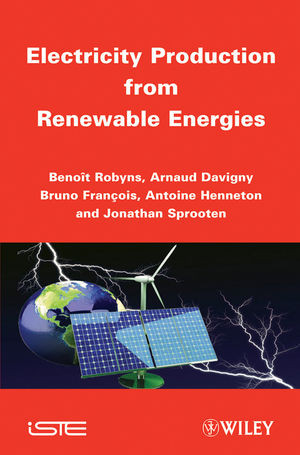

Most ebook files are in PDF format, so you can easily read them using various software such as Foxit Reader or directly on the Google Chrome browser.
Some ebook files are released by publishers in other formats such as .awz, .mobi, .epub, .fb2, etc. You may need to install specific software to read these formats on mobile/PC, such as Calibre.
Please read the tutorial at this link: https://ebookbell.com/faq
We offer FREE conversion to the popular formats you request; however, this may take some time. Therefore, right after payment, please email us, and we will try to provide the service as quickly as possible.
For some exceptional file formats or broken links (if any), please refrain from opening any disputes. Instead, email us first, and we will try to assist within a maximum of 6 hours.
EbookBell Team

4.1
70 reviewsEnergy and environmental issues have caused a marked increase in electricity production from renewable energy sources since the beginning of the 21st Century. The concept of sustainable development and concern for future generations challenge us every day to produce new technologies for energy production, and new patterns of use for these energies. Their rapid emergence can make the understanding and therefore the perception of these new technologies difficult. This book aims to contribute to a better understanding of the new electricity generation technologies by addressing a diverse audience. It presents the issues, sources and means of conversion into electricity using a general approach and develops scientific concepts to understand their main technical characteristics.
Systems of electricity generation from renewable energy resources of small to medium powers are presented. The basic electrical concepts necessary for understanding the operating characteristics of these energy converters are introduced, and the constraints and problems of integration in the electrical networks of those means of production are discussed. Several exercises are provided to the reader for evaluation purposes.
Contents
1. Decentralized Electricity Production from Renewable Energy, Benoit Robyns.
2. Solar Photovoltaic Power, Arnaud Davigny.
3. Wind Power, Bruno Francois and Benoit Robyns.
4. Terrestrial and Marine Hydroelectricity: Waves and Tides, Benoit Robyns and Antoine Henneton.
5. Thermal Power Generation, Jonathan Sprooten.
6. Integration of the Decentralized Production into the Electrical Network, Benoit Robyns.